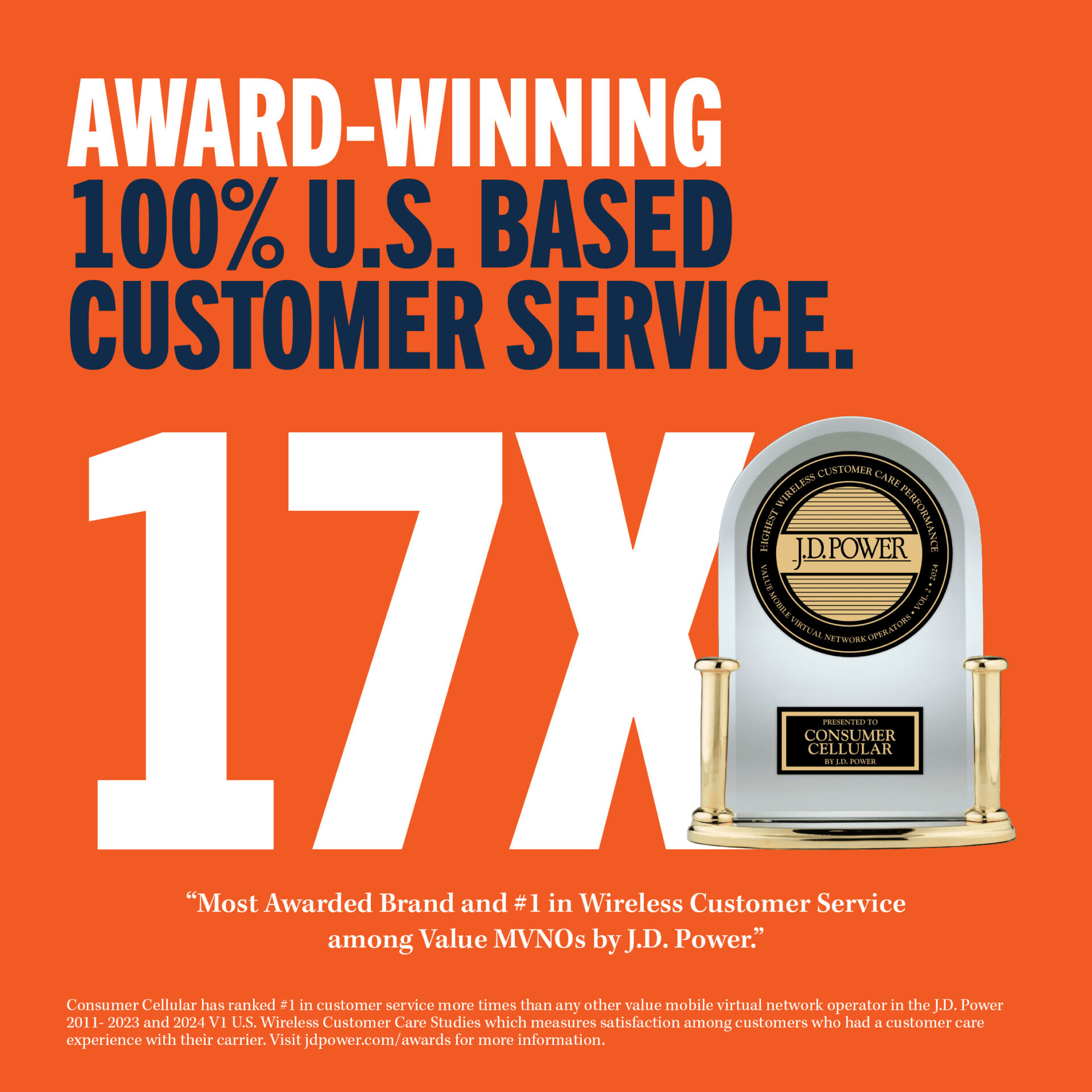In today’s digitally connected world, staying mobile is crucial. However, navigating the complexities of mobile phone plans and service providers can be daunting. Consumer Cellular emerges as a compelling option for users seeking a simpler and more affordable mobile experience. This comprehensive guide delves into information about Consumer Cellular, exploring its core offerings, value proposition, available phone options, network coverage, customer service, and factors to consider when deciding if it’s the right fit for you.
Beyond the Basics: Unveiling the Core Offerings of Consumer Cellular
Consumer Cellular is a mobile virtual network operator (MVNO) in the United States. Unlike major carriers like Verizon or AT&T that own and operate their own cell towers, MVNOs utilize the existing infrastructure of these major carriers to provide cellular service. Here’s a breakdown of Consumer Cellular’s core offerings:
- No-Contract Plans: Consumer Cellular prioritizes no-contract plans, offering flexibility and freedom from lengthy service commitments. You can choose a plan that aligns with your usage needs and adjust it as needed.
- Affordability: Consumer Cellular focuses on offering competitive pricing for both phone plans and devices. This makes them an attractive option for budget-conscious users.
- Simplicity: Their services are designed with user-friendliness in mind. They offer straightforward plans, easy-to-understand billing, and customer service known for its accessibility and helpfulness.
- Focus on Seniors: While Consumer Cellular caters to a broad audience, they have a strong focus on serving seniors. They offer senior-friendly phones with large buttons, clear interfaces, and features like emergency assistance buttons.
Remember: Consumer Cellular prioritizes no-contract plans, affordability, user-friendliness, and caters particularly to seniors.

Beyond the Price Tag: Exploring the Value Proposition of Consumer Cellular
Understanding the value proposition of Consumer Cellular helps determine if it’s the right fit for you:
- Cost Savings: No-contract plans and competitive pricing offer significant cost savings compared to traditional carrier contracts with bundled features you might not even use.
- Flexibility: The freedom to change plans or cancel service at any time provides flexibility for users with fluctuating needs or those who prefer a commitment-free approach.
- Simplicity: User-friendly plans, clear billing, and accessible customer service make navigating mobile service a breeze, especially for those who dislike complex contracts or hidden fees.
- Limited Features: Consumer Cellular plans might not include all the bells and whistles of premium plans offered by major carriers. However, this translates to a more streamlined experience for users who prioritize affordability and simplicity.
Remember: Consumer Cellular offers value through cost savings, flexibility, simplicity, and a focus on affordability over extensive features.
Beyond the Website: Exploring Phone Options Available at Consumer Cellular
Consumer Cellular offers a curated selection of phones from various manufacturers. Here’s a glimpse into what you might find:
- Budget-Friendly Smartphones: Explore options like the Motorola moto g pure or moto g play, offering essential features like calling, texting, web browsing, and basic cameras at affordable price points.
- Senior-Friendly Phones: Consumer Cellular carries flip phones like the Jitterbug Flip2 or Consumer Cellular Iris Flip with large buttons, clear displays, dedicated emergency buttons, and simplified interfaces for ease of use.
- Mid-Range Options: For users who want a step up from the most basic smartphones, some models like the Motorola moto edge offer more powerful processors, improved camera capabilities, and larger displays.
Remember: Consumer Cellular’s phone selection prioritizes affordability and user-friendliness, catering to budget-conscious users and seniors. They might not carry the latest high-end models.
Beyond the Signal Strength: Understanding Consumer Cellular’s Network Coverage
As an MVNO, Consumer Cellular relies on the existing networks of major carriers. Here’s a breakdown of their network coverage:
- Primarily Utilizes AT&T Network: Consumer Cellular primarily utilizes the network infrastructure of AT&T, offering coverage across most of the United States.
- Limited Coverage in Remote Areas: While extensive, AT&T’s network coverage might be limited in some very remote areas. It’s crucial to check coverage maps before subscribing, especially if you spend time in rural locations.
- Alternative Network Options: In some limited cases, Consumer Cellular might offer plans utilizing other carrier networks depending on your location.
Remember: Consumer Cellular’s network coverage primarily relies on AT&T, offering good coverage in most areas, but potential limitations exist in remote locations. Check coverage maps before subscribing.
Beyond the Hold Music: Understanding Consumer Cellular’s Customer Service
Consumer Cellular prides itself on offering accessible and helpful customer service. Here’s a breakdown of what to expect:
- Multiple Contact Methods: You can reach Consumer Cellular customer service representatives through various channels:
- Phone: Dial 611 from your Consumer Cellular phone or 1-800-331-0500 from any phone. Be prepared for potential wait times during peak hours.
- Online Chat: Access the online chat option on their website for a potentially quicker alternative to phone calls.
- My Consumer Cellular App: Download the My Consumer Cellular app (available for iOS and Android) and navigate to the “Support” section for chat functionality or troubleshooting resources.
- Retail Stores: Visit a physical Consumer Cellular retail store if available in your area. While wait times might occur, in-person assistance can be beneficial for complex issues.
- Focus on User-Friendliness: Customer service representatives are known for being patient and helpful. They aim to explain things in a clear and concise manner, avoiding technical jargon.
- Limited Technical Expertise: While capable of addressing most common issues, Consumer Cellular’s customer service might not have the same level of technical expertise as representatives from major carriers dealing with a wider range of complex devices and service plans.
Remember: Consumer Cellular offers multiple ways to reach customer service, with a focus on user-friendliness. For highly technical issues, representatives from major carriers might have deeper expertise.
Beyond the Hype: Is Consumer Cellular Right for You?
Before subscribing to Consumer Cellular, consider these factors to determine if it aligns with your needs:
- Budget: If affordability is paramount, Consumer Cellular’s no-contract plans and competitive pricing can be a significant advantage.
- Usage: Evaluate your typical phone usage. If you primarily need calling, texting, and basic web browsing, Consumer Cellular’s plans might be sufficient. However, heavy data users who require extensive streaming or downloading might benefit from plans with larger data allowances offered by major carriers.
- Need for Advanced Features: If you prioritize access to the latest features, extensive data allowances, or top-tier network coverage, major carriers might be a better fit. Consumer Cellular prioritizes affordability and simplicity over offering every feature available.
- Comfort with Technology: If you’re comfortable navigating smartphones and technology, Consumer Cellular offers a user-friendly experience. However, if you require extensive hand-holding or prefer simpler flip phones, their senior-friendly options are a strong selling point.
Remember: Consumer Cellular is a strong option for budget-conscious users prioritizing affordability and user-friendliness. However, their plans might not cater to heavy data users or those requiring access to the latest features and top-tier network coverage.
Beyond the Decision: Additional Tips for Choosing a Mobile Service Provider
Here are some additional tips for choosing a mobile service provider:
- Compare Plans: Thoroughly research and compare plans from different providers, including Consumer Cellular and major carriers. Consider your needs, budget, and data usage.
- Read Reviews: Online reviews offer valuable insights into real-world experiences with different service providers. Read reviews about Consumer Cellular and other options to gauge customer satisfaction.
- Check Coverage Maps: Ensure the provider you choose offers good network coverage in your area, especially if you spend time in rural locations. Consumer Cellular utilizes the AT&T network, so check their coverage maps.
- Consider Hidden Fees: Be wary of hidden fees or additional charges that might not be readily apparent in advertised prices.
Remember: Take your time, research thoroughly, and prioritize your needs when choosing a mobile service provider. Consumer Cellular can be a suitable option for many, but explore alternatives to ensure you find the perfect fit.
In Conclusion: Empowering Yourself as a Mobile User
Choosing the right mobile service provider can be overwhelming. This comprehensive guide has equipped you with the knowledge to delve into information about Consumer Cellular, understand their core offerings, value proposition, phone options, network coverage, and customer service. By considering your needs, budget, usage patterns, and comfort level with technology, you can make an informed decision about whether Consumer Cellular is the right fit for you. Remember, prioritize your needs, compare options, and don’t hesitate to explore alternatives to find the mobile service provider that empowers you to stay connected and enjoy the benefits of mobile technology.


